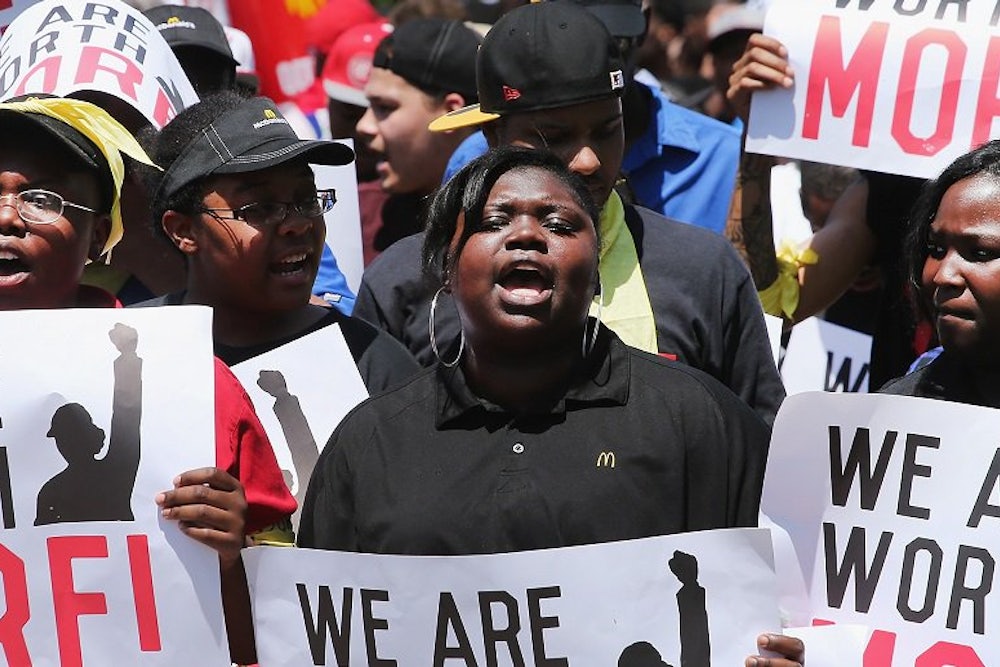Conventional wisdom holds that Republicans must pass immigration reform to have any chance of winning the presidential election in 2016. But that conventional wisdom has always been wrong. There’s no reason passing immigration reform would suddenly increase the Republican Party’s share of Hispanic votes. And, as Real Clear Politics’s Sean Trende has explained, Republicans have a path to the White House even without a big number of Hispanic votes.
But Tuesday night’s results revealed a different issue that could be a political liability for the GOP in 2016: the minimum wage. Ballot initiatives to raise the minimum wage passed easily in Alaska, Arkansas, Nebraska, and South Dakota—not exactly liberal states. Each of those minimum wage hikes is different. In Nebraska, for instance, the minimum wage will rise to $9. In Arkansas, it will rise to $8.50. Ballot measures also passed in Oakland and San Francisco to raise the minimum wage to $12.25 and $15 respectively. Illinois passed a non-binding ballot measure to raise the minimum wage as well.
That voters want to use public policy to increase wages isn't surprising. The exit polls from Tuesday night also showed that economy continues to be the top issue for the American people. Real wages are stagnant and Americans see raising the minimum wage as an easy way to change that. That’s why poll after poll has shown that majorities of Democrats and Republicans support a minimum wage hike. But Senate Republicans have steadfastly blocked the president’s plan to raise the minimum wage to $10.10. In all likelihood, they will continue to do so with Mitch McConnell as majority leader. Even if Senate Republicans somehow compromised with their Democratic counterparts on a smaller increase in the minimum wage, it would still face very long odds in the House.
It’s not hard to see the political problem here. How long can the GOP reject a policy idea that not only has support of both Democrat and Republican voters but has been implemented individually in 29 states, often through ballot measures? To be fair, most of those do not raise the minimum wage to $10.10. But the fact remains that the vast majority of the public—including more than 80 percent of Hispanics—supports Obama’s plan. The Republican refusal to act on it may quickly symbolize disdain for the lower and middle class.
After Tuesday night’s shellacking, the Democrats aren’t in a position to make any demands. But if there is any issue that they can point to and declare victory, it’s the minimum wage. As we turn the pages on 2014 and start thinking about 2016, it—and not immigration reform—may pose the biggest political threat to the GOP.
